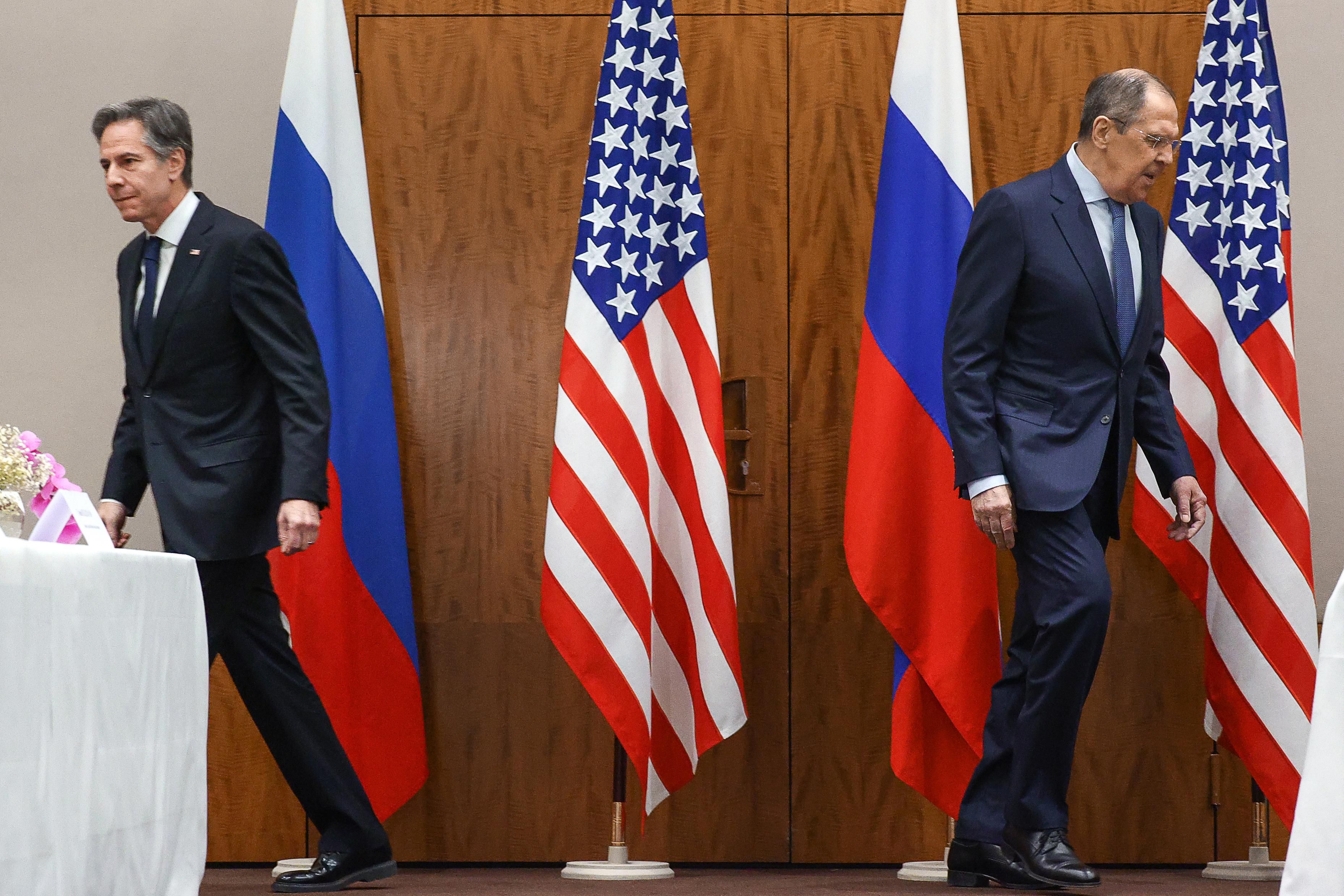Ukraine diplomatic blitz. The US and the UK have withdrawn some staff from their embassies in Kyiv, and NATO countries put more troops on standby amid an ongoing flurry of diplomacy to stop Russia from invading Ukraine. After playing defense for his boss over Joe Biden’s controversial remarks about Russia and Ukraine, US Secretary of State Antony Blinken warned of a severe response if any Russian forces cross the border. However, Blinken — who is trying to shore up a united front with Europe while keeping the Russian dialogue open — turned down Ukraine’s demand for preemptive sanctions against Russia. Also, the UK accused the Russians of planning to install a pro-Moscow leader in Kyiv. Meanwhile, on the ground both sides continue to beef up their military presence. While the first US weapons arrived in Ukraine, across the border Russia moved troops and equipment to Belarus, Ukraine’s northern neighbor and a staunch Moscow ally. Blinken is expected to continue talks this week with the Russians, but there’s an X factor: China. Xi Jinping, whom Vladimir Putin now calls his “old friend”, probably doesn’t want the upcoming Beijing Winter Olympics to be marred by a hot war in Europe, so perhaps he’ll try to talk his pal out of an invasion.
India debates elections or infections. Elections in the world’s largest democracy are quite the spectacle. They are massive logistical undertakings, marked by weeks of colorful campaigning and festivals. But COVID restrictions on large rallies mean the upcoming polls in five states — including Uttar Pradesh, the most populous one — will be conducted somewhat differently. As daily infections have spiked from less than 10,000 to over 300,000 in just one month, many Indians are feeling déjà vu from the spring of 2021, when India suffered a devastating second pandemic wave also preceded by state elections. PM Narendra Modi — who at the time claimed that India had beaten the virus — didn’t stop campaigning and allowed religious festivals to turn into superspreader events, only to later take fire for his mishandling of the public health crisis. But for the February polls, the election commission, and the courts have both spoken: yay to democracy, nay to campaigning. We’ll be keeping an eye on whether the restrictions result in lower turnout, which could hurt Modi’s ruling BJP party.
Italy's presidential "election." More than 1,000 Italian MPs and regional delegates begin voting on Monday in a complex process with serious papal conclave vibes to select a new president. Candidates need a two-thirds majority to win in the first three rounds, and after that 50 percent of the vote. There's no clear favorite to replace the outgoing Sergio Matarella as president, a largely ceremonial post that also has the power to pick prime ministers, call early elections, and sign/veto laws. Silvio Berlusconi, the 85-year-old former prime minister and “bunga bunga” king, initially threw his hat into the ring, but dropped out at the last moment. Current PM Mario Draghi is reportedly interested, although most Italian political parties would rather he continue leading Italy’s unity coalition government until legislative elections scheduled for next year. Draghi, a popular and respected former European Central Bank chief, has ambitious plans to cut Italian red tape in order to pump 192 billion euros ($218 billion) of EU pandemic relief money into the economy. Will "Super Mario" agree to stay in his current post to get the job done?
Mutineers, militants, and mines. Rebel soldiers in the West African nation of Burkina Faso on Monday reportedly arrested President Roch Kaboré in an apparent coup. A day earlier the mutineers had taken over some barracks, demanding that the government give them more resources to fight jihadists, sack the military and intelligence chiefs, and provide welfare for their wounded. The Burkinabé army has long struggled to combat Islamic State-linked militants, who are increasingly using the country to make inroads in the wider Sahel region. The government initially dismissed the power grab, which happened amid wider popular discontent with the president. Kaboré, who was re-elected in 2020 for a second term, has failed to defeat the insurgency, which is causing one of the world’s most underreported humanitarian disasters. What’s more, Burkina Faso has a lot of gold mines whose foreign investors are getting fed up with jihadist attacks.
Russia vs crypto. Russia’s central bank
wants to ban cryptocurrency in all its forms and uses. The blanket ban would include transactions as well as mining crypto. Even though Russia is the world’s third-largest crypto miner by volume, the central bank says crypto is a speculative asset, a “pyramid scheme” that undermines regulators and threatens Russia’s climate policies because mining is very
energy-intensive. The proposal comes as the EU is making its own
bid to get rid of crypto mining, also citing environmental concerns. Last summer, crypto markets fell but rose again after a similar ban by China sparked a global sell-off. Now, and despite the
increased mainstreaming of crypto assets, Bitcoin prices have slumped in recent days due to the Russian proposal and fears that US regulators may soon act on crypto. Still, Moscow isn’t exactly done framing its digital monetary policy: the Russians might
permit using gold-backed “stablecoins” and some crypto mining activities under government control.
